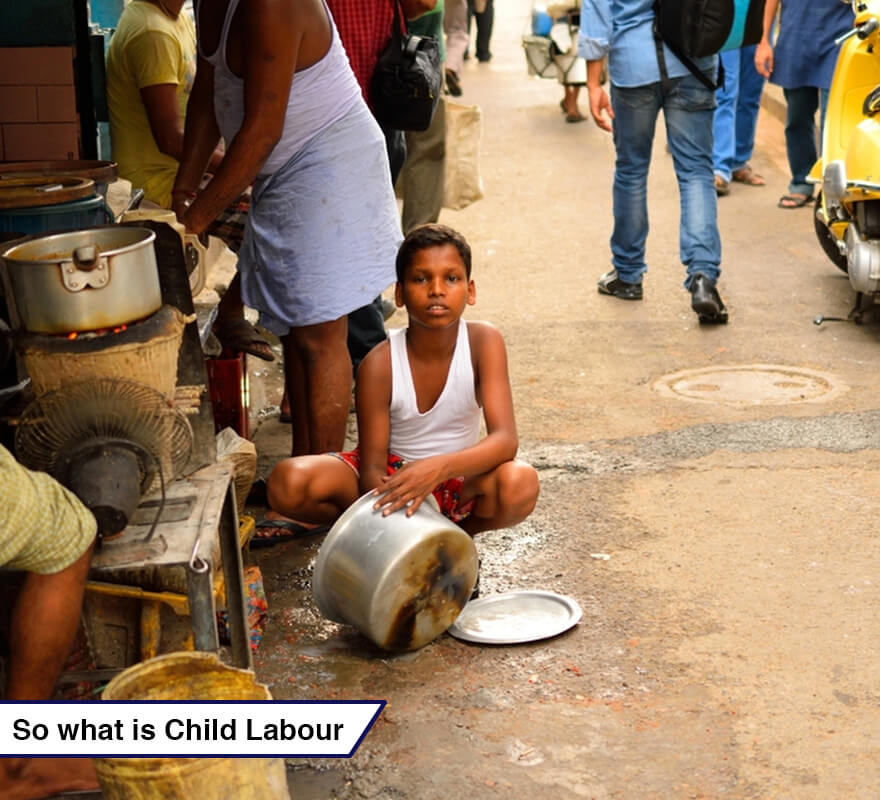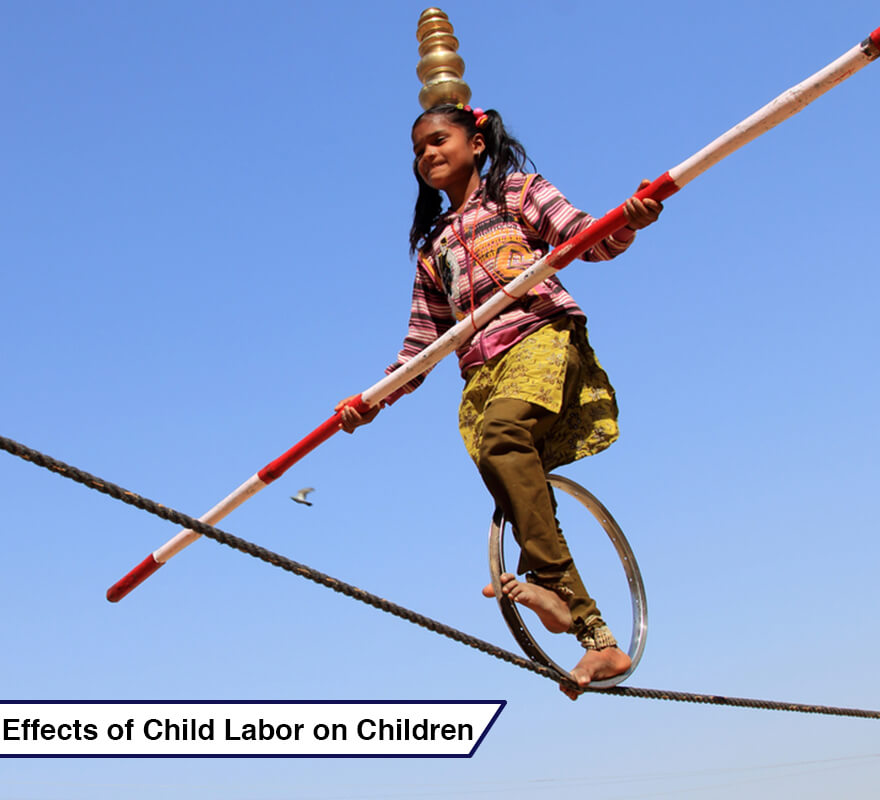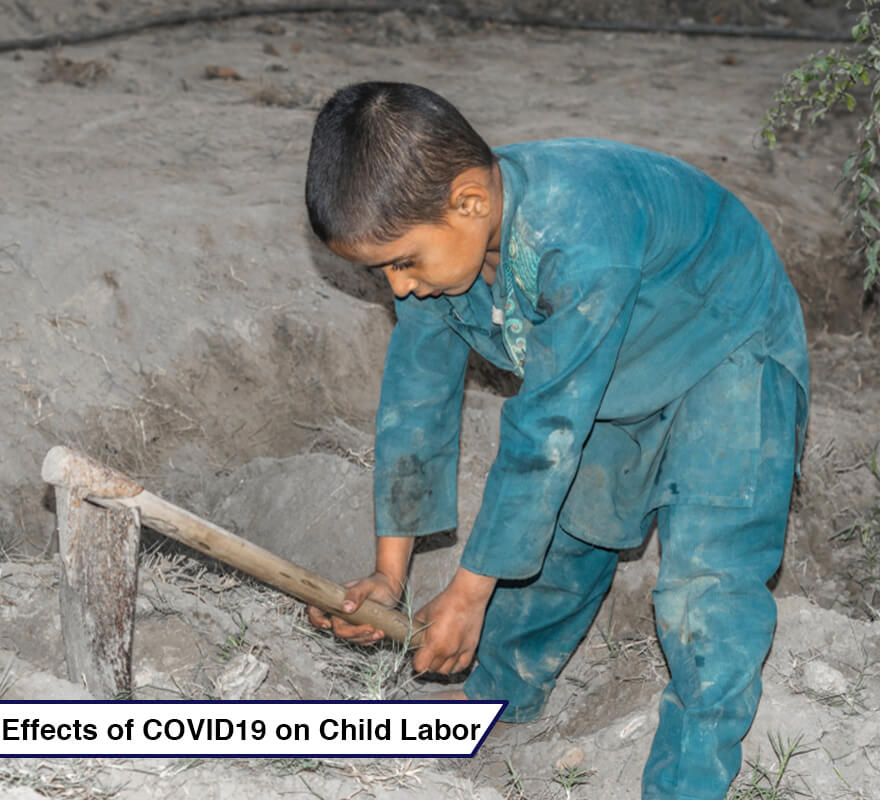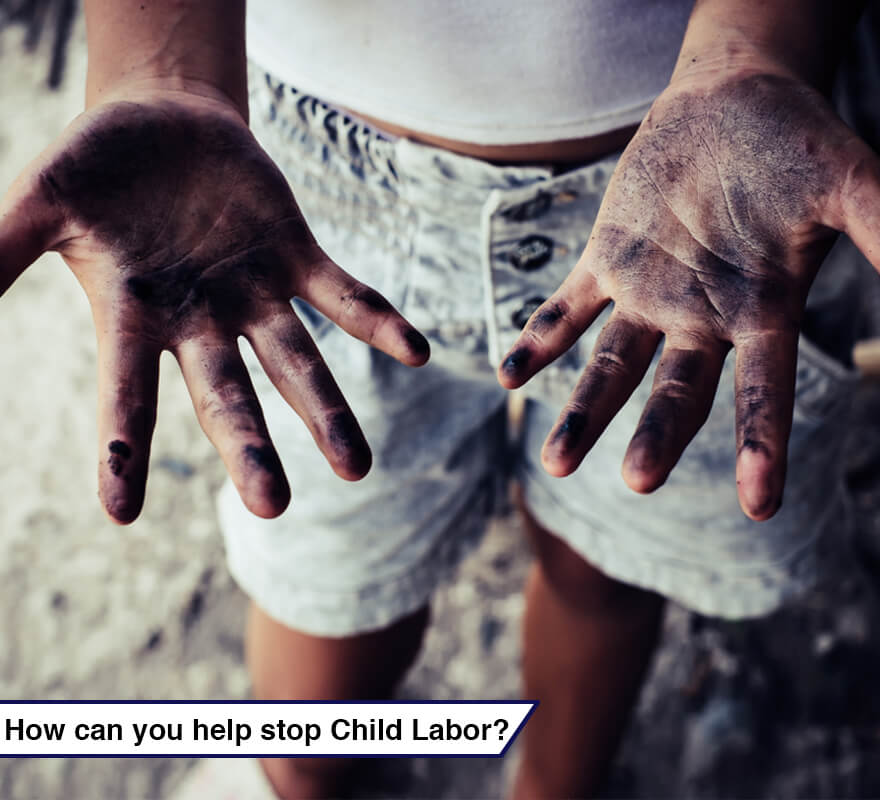According to official data, there are around 152 million children worldwide working as
child laborers, out of which India accounts for close to 7.3 percent of that number.
Do you know what privilege is? Most of us do, as we are staying in our apartments or plush
houses with all the comforts in the world, many of which are not available to underprivileged
children. Just take a walk on the streets and observe the number of children working at tea stalls,
begging at signals, or simply asking strangers to buy some flowers or some random Chinese
products.
At the age at which most children should be in school, these children are often seen roaming the
streets. By making them work as breadwinners for their families, child labor not only violates the
very essence of their existence/childhood but also contributes to the growing illiteracy rate of
India.
A lot of government bodies along with NGOs in Mumbai and all across India are striving to keep
children in schools and not out there working as child laborers.
India alone has 33 million child laborers. Rural India has the highest percentage of child
labor, accounting for 80% of the total burden in India.
So What is Child Labor?

The term 'child labor' is often defined as work that deprives children of their childhood, their potential, and their dignity, and is harmful to their physical and mental development.
Child Labor often means long hours of work which is mentally, physically, and emotionally draining and deprives children of their childhood.
Child Labor also interferes with a child's ability to learn and attend school, which either makes them drop out of school or have to combine school with long hours of work.
Effects of Child Labor on Children

When a child is forced into working, the most important thing for a child's development which is education takes a back seat. Children's ability to learn and their right to education is paramount in making them grow to be responsible citizens of India.
Children who start working early are also more vulnerable to attacks, abuse both physical and mental, illicit drug use, forced labor, and a lot of stress to bring home food for their families.
In addition to physical effects, the psychological effects on children can leave them traumatized for life and some may develop mental health issues like anxiety, depression, substance abuse, guilt, OCD's, loss of confidence, and hopelessness.
Causes of Child Labor
Social Inequalities prevail in our society where the difference between the poor and rich is insurmountable.
The top 10% of the Indian population holds 77% of national wealth.
So while the rich are getting richer the poor are left to scavenge for necessities such as healthy food, clean drinking water, right to education, and medical care facilities.Many poor families in India are financially unstable having low-income levels, lack job diversity, and have no other alternatives other than sending their children to work. In some cases, children are also sold to child traffickers to decrease the burden on their families and to gain some extra money.
How is the government helping in eradicating Child Labor?
The Indian government has adopted several laws to eradicate child labor from India. The Child Labour (Prohibition & Regulation) Act, 1986 prohibits employment of children below the age of 14 years in 18 occupations and 65 processes.
People who employ children below 14 years old for working in industrial or non-industrial processes can be jailed for a period of 6 months to 2 years. Also, they may end up paying a fine between Rs 20,000 to Rs 50,000 and the same applies even to children aged between 14- 18 years.
Some parents from underprivileged backgrounds force their children to work, and in such cases, the law states that first-time offenders will be let off with a warning. However, on repeat instances, the parents can be fined Rs 10,000.
Effects of COVID19 on Child Labor

Ever since the lockdown started in March 2020 all of us have seen images of migrant workers, daily wage laborers start migrating to their home towns with whatever belongings they had.
The pandemic not only created havoc in the lives of many but also had deep economic impacts with several million people losing their jobs, having to take pay cuts, and economic activity in rural India coming to a standstill.
There were 3 major child labor problems seen all across India ever since the COVID pandemic hit which were as follows -
Firstly because of the loss of jobs to migrant workers or daily wage earners a lot of their children were asked to take up odd jobs to support their families.
Secondly, because most of the migrant workers left for their homes, there was a shortage of manpower in big companies and enterprises. Child labor is comparatively cheaper and this could lead to children being forced to work by their parents for quick money.
Thirdly, a lot of schools shut during the pandemic, and parents who had girls at home made them get involved in daily chores. The drop out rate will be higher even if the schools start opening again, especially for girls.
How can you help stop Child Labor?

The time to speak against child labor has always been important, but it's now more so important to raise your voice. If you see children aged between 5 - 18 working at your local shops, housing societies, tea stall it best to report these cases to the local authorities by dialing 1098 in 72 cities across India or login your complaint here
In 2018 there were 464 cases of child labor reported across the country which is far less than the actual number of children working either in industrial or non-industrial processes.
There are a lot of top NGOs who are working for child welfare across India. Child Help Foundation (CHF), a child-centric non-profit organization headquartered in Mumbai, India, and having a countrywide presence, has been working tirelessly for nearly a decade to keep children off the streets.
A few of CHF's programs include Zero Hunger, Education Support, and Gender Equality which helps in transforming the lives of children.
Child Labor in the coming few years can define the faith of India, as more children/youth if not educated today, could lead to both economic and social impacts for the country. India is a young and developing country so there needs to be more concentrated efforts by the governments, local authorities, and non-profits to work in tandem to keep the children off the streets.
We need to accept that no pandemic, no economic crises, and no extraordinary circumstances can ever justify children being robbed of their childhood. One can only see the change if we act now.
#STOPCHILDLABOR
 (1).jpg)